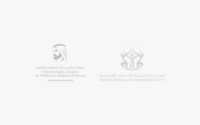Technology Will Improve Healthcare, Not Replace Doctors, States Experts At Knowledge Summit 2018
Artificial Intelligence is not poised to replace doctors, panellists on day one of the Knowledge Summit 2018 asserted in a session titled “Utilising Knowledge to Improve Healthcare”. Rather, it will help to increase convenience, improve accessibility, and provide more accurate diagnoses and treatment plans.
Held under the patronage of H.H. Sheikh Mohammed bin Rashid Al Maktoum, Vice President and Prime Minister of the UAE, Ruler of Dubai, and the directives of MBRF’s Chairman H.H. Sheikh Ahmed bin Mohammed bin Rashid Al Maktoum, the Summit is taking place on December 5-6, 2018, at the Dubai World Trade Centre.
The panel was moderated by Brig. Dr Ali Singel, Director of Dubai Police Health Centre, and brought together Dr Reem Osman, CEO of Saudi German Hospital; Ziad Sankari, Founder of CardioDiagnostics; and Conor McCarthy, International Business Development Lead at Babylon Health.
Knowledge can be used to make healthcare more accessible and affordable for all, said McCarthy, asserting that artificial intelligence (AI) can be used to make doctors’ jobs easier by completing admin work. Machines, he said, can analyse data more efficiently than people, therefore aiding in diagnostics – and smart applications can be used to screen patients’ symptoms before they make a physical visit to healthcare providers, therefore ensuring that only those who need to see a doctor are forwarded to the clinic.
According to Dr Osman, technology is helping provide better healthcare and reducing costs. Apps, in particular, provide convenience and speed, enabling patients to access medical records, prescriptions and much more, in addition to reminding patients to take medication, schedule follow-up visits, etc., leading to faster and better recovery.
AI does not yet have the capacity to replace humans, stated Sankari, especially in healthcare – which is a “deep knowledge-based industry,” but it can be used to augment and improve it, in addition to providing better access to healthcare at lower costs.
The key to driving acceptance of technology and machines in healthcare is education and training, claims Osman. Once doctors and patients are comfortable with using technology, it will become more widely used throughout healthcare practices.
The Knowledge Summit 2018 brings together more than 100 speakers including experts, decision makers and stakeholders from around the world in more than 45 discussion panels. Since its launch in 2014, the Knowledge Summit has welcomed more than 5,000 participants and 300 decision makers, experts, and academics from all around the world, who took part in over 110 discussion panels and workshops.







